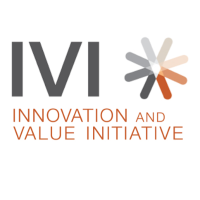IVI Research Brief Examines Value Assessment in the Age of COVID
Researchers Highlight Important Advancements in Understanding Value Emerging from the Pandemic

Alexandria, VA, November 10, 2020 --(PR.com)-- The Innovation and Value Initiative (IVI) - a nonprofit organization dedicated to advancing the science, practice, and use of value assessment in healthcare - today released its latest Value Blueprints research brief recommending key areas for adapting value assessment to address decision-making in the COVID pandemic.
The Value Blueprint emphasizes that the evolving scientific knowledge and evidence base regarding COVID treatments and interventions requires more nimble value assessment capability. For a value assessment to be useful to decision makers, it must better account for scientific uncertainty, incorporate broader societal and public health perspectives, and support decisions that increase equity and reduce health disparities.
“The pandemic has laid bare both the importance of value assessment and the shortcomings in current methods and models,” said Jennifer Bright, IVI’s executive director. “The urgent need for insights into the value of COVID diagnostics, therapies, and vaccines highlights the importance of improving and advancing value assessment methods. We believe this research brief underscores important aspects to improving value assessment that can have a positive impact on our wider understanding of value to society.”
IVI’s research brief highlights methodological areas where health economists should concentrate research and modeling efforts to better evaluate the balance between benefits, risks, and costs of COVID interventions, including:
· Accounting for uncertainty as scientific knowledge evolves;
· Factoring in proven novel value elements into modeling;
· Addressing diverse patient populations and differences in therapeutic response;
· Evaluating across interventions, including public health interventions, such as social distancing and mask wearing;
· Assessing negative spillover effects such as delayed care; and
· Accounting for impacts on macroeconomic activity in the U.S.
The IVI research brief also notes that addressing methodological gaps is only a first step. For value assessment to be meaningful, models must support more efficient and beneficial decisions about resource allocation. This includes addressing issues of equity and disparities in care. Given the differential impacts of the pandemic on subpopulations, it is crucial to ensure equity - in terms of access, financial burden, and outcomes - as a key objective in value assessment and subsequent decision making. Efforts should be made to ensure that minority populations are represented in the data collection, clinical trials and decision-making processes.
“The pandemic reinforces an ongoing need for modernized and flexible approaches to value assessment that consider the diverse needs of patients in addition to the concerns of those who pay for care,” Bright concluded. “A singular approach that uses conventional methods and is unable to accommodate wider, societal perspectives will continue producing answers that are less meaningful to all stakeholders. Hopefully, one positive enduring outcome of this pandemic will be a recognition of the steps needed to improve how we assess value of healthcare interventions.”
The Value Blueprint emphasizes that the evolving scientific knowledge and evidence base regarding COVID treatments and interventions requires more nimble value assessment capability. For a value assessment to be useful to decision makers, it must better account for scientific uncertainty, incorporate broader societal and public health perspectives, and support decisions that increase equity and reduce health disparities.
“The pandemic has laid bare both the importance of value assessment and the shortcomings in current methods and models,” said Jennifer Bright, IVI’s executive director. “The urgent need for insights into the value of COVID diagnostics, therapies, and vaccines highlights the importance of improving and advancing value assessment methods. We believe this research brief underscores important aspects to improving value assessment that can have a positive impact on our wider understanding of value to society.”
IVI’s research brief highlights methodological areas where health economists should concentrate research and modeling efforts to better evaluate the balance between benefits, risks, and costs of COVID interventions, including:
· Accounting for uncertainty as scientific knowledge evolves;
· Factoring in proven novel value elements into modeling;
· Addressing diverse patient populations and differences in therapeutic response;
· Evaluating across interventions, including public health interventions, such as social distancing and mask wearing;
· Assessing negative spillover effects such as delayed care; and
· Accounting for impacts on macroeconomic activity in the U.S.
The IVI research brief also notes that addressing methodological gaps is only a first step. For value assessment to be meaningful, models must support more efficient and beneficial decisions about resource allocation. This includes addressing issues of equity and disparities in care. Given the differential impacts of the pandemic on subpopulations, it is crucial to ensure equity - in terms of access, financial burden, and outcomes - as a key objective in value assessment and subsequent decision making. Efforts should be made to ensure that minority populations are represented in the data collection, clinical trials and decision-making processes.
“The pandemic reinforces an ongoing need for modernized and flexible approaches to value assessment that consider the diverse needs of patients in addition to the concerns of those who pay for care,” Bright concluded. “A singular approach that uses conventional methods and is unable to accommodate wider, societal perspectives will continue producing answers that are less meaningful to all stakeholders. Hopefully, one positive enduring outcome of this pandemic will be a recognition of the steps needed to improve how we assess value of healthcare interventions.”
Contact
Innovation and Value Initiative
Eric Hoffman
202-285-0810
http://www.thevalueinitiative.org/
Eric Hoffman
202-285-0810
http://www.thevalueinitiative.org/
Categories
